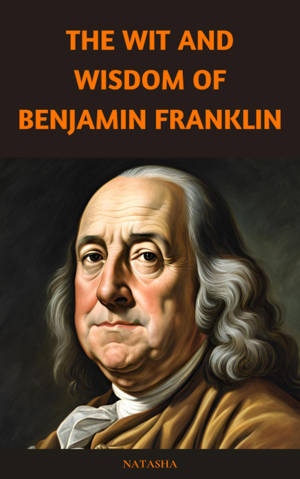
- Retrait gratuit dans votre magasin Club
- 7.000.000 titres dans notre catalogue
- Payer en toute sécurité
- Toujours un magasin près de chez vous
- Retrait gratuit dans votre magasin Club
- 7.000.0000 titres dans notre catalogue
- Payer en toute sécurité
- Toujours un magasin près de chez vous
Description
Benjamin Franklin, a pivotal figure in American history, was renowned for his diverse talents and profound impact on society. Born in Boston, he later settled in Philadelphia, where his early career as a printer and author of "Poor Richard's Almanack" established his reputation as a prolific writer and thinker. Franklin's intellectual pursuits extended into science, where his experiments with electricity brought him international acclaim and contributed significantly to the understanding of natural phenomena.
As a statesman and diplomat, Franklin played crucial roles in the American Revolution, signing key treaties and helping to draft the U.S. Constitution. His advocacy for social causes included early support for the abolition of slavery and efforts to promote education through institutions like the University of Pennsylvania.
Franklin's legacy is also marked by his inventions, notably the glass harmonica, which influenced composers like Mozart and Beethoven. His philanthropic spirit is evident in his bequests to Boston and Philadelphia, ensuring funds would benefit future generations through education and community development.
Honored on U.S. currency and postage stamps, and commemorated through statues and museums in Philadelphia and London, Franklin's enduring influence as a Founding Father, scientist, inventor, and advocate for social progress remains a cornerstone of American history.
Spécifications
Parties prenantes
- Auteur(s) :
- Editeur:
Contenu
- Langue:
- Anglais
Caractéristiques
- EAN:
- 9798223329633
- Date de parution :
- 10-07-24
- Format:
- Ebook
- Protection digitale:
- /
- Format numérique:
- ePub

Les avis
Nous publions uniquement les avis qui respectent les conditions requises. Consultez nos conditions pour les avis.






